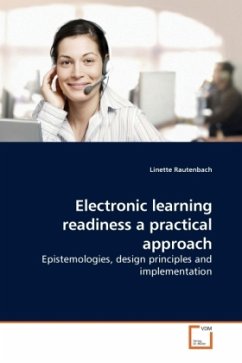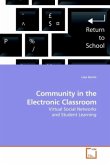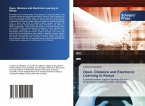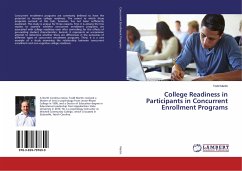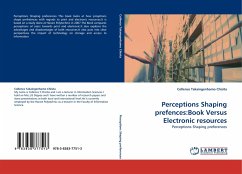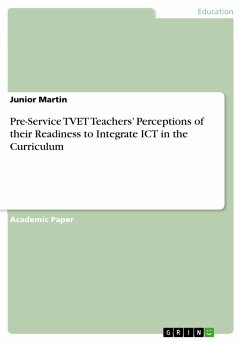The purpose of the book is to improve current computer-facilitated educational practices by enabling trainers to prepare better for e-learning events. Knowing what needs to be in place before the event ensures better results. The context in which the concept of e-readiness is used refers to the state of being ready for electronic learning (Online Reporting Specialists, 2005). Unlike the reference to e- readiness of a country it is geographically smaller. It is not limited to physical readiness alone but also includes the non-physical readiness of people, a business or organization, e.g. mental readiness as well as organizational cultural readiness (Hill and Raven s, 2000). The book describes inherent characteristics of distance education, Constructivist as opposed to Objectivist learning and the use of electronic media for distance education. Generic aspects influencing readiness for electronic learning are identified. A workable e-readiness model with a Constructivist approach are provided. The model can be used by trainers as departure point when planning for, diagnosing problems of, or evaluating an e-learning event.
Bitte wählen Sie Ihr Anliegen aus.
Rechnungen
Retourenschein anfordern
Bestellstatus
Storno

